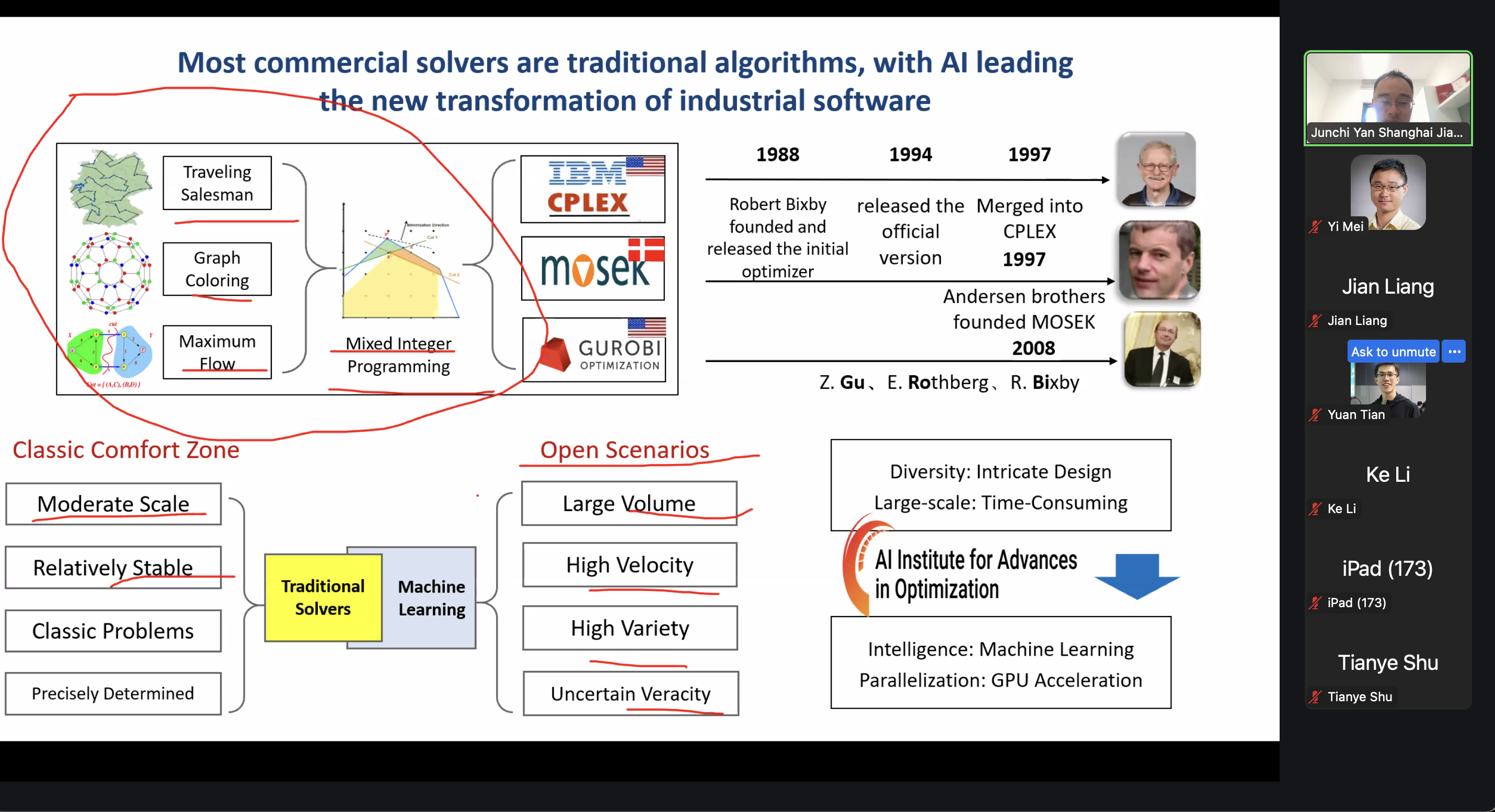

Speaker: Junchi Yan, Shanghai Jiao Tong University, China
Date: 13 January 2025
Time: 4:00 - 5:00pm (Beijing Time, UTC+8)

Junchi Yan is currently a Full Professor with School of Artificial Intelligence, Shanghai Jiao Tong University (SJTU), Shanghai, China. Before that, he was a Senior Research Staff Member with IBM Research China during 2011-2018. He received his PhD in Electronic Engineering from SJTU in 2015. He serves as Associate Editor for IEEE TPAMI, Pattern Recognition Journal, and Area Chair for ICML, ICLR, NeurIPS etc. He has received major fundings in AI from NSFC and MOST up to 10M RMB. His main research interest is machine learning and its intersection with other areas especially operations research. He has received the award of CVPR 2024 best paper candidate, the most influential papre by PaperDigest (NO.1) of AAAI21 and IJCAI23. He also received the People of the year for Intelligent Computing in 2023 by MIT Tech Review. He is a Fellow of IAPR and Senior Member of IEEE.
In this talk, I will introduce our works on developing machine learning models for solving different problems in combinatorial optimization, regarding with both AI native and AI aided approaches, which are developing very fast especially in the machine learning community. Moreover, I will also cover the emerging applications including those from electronic design automation, computational chemistry and quantum computing. I will conclude the talk with some fresh thoughts on our ongoing and future works, and the potential of LLM and other kinds of (so-called) foundation models for combinatorial optimization.
The Webinar went very successful, with 60+ participants.
The slides of the Webinar can be found here.

Back to the Webinar Series